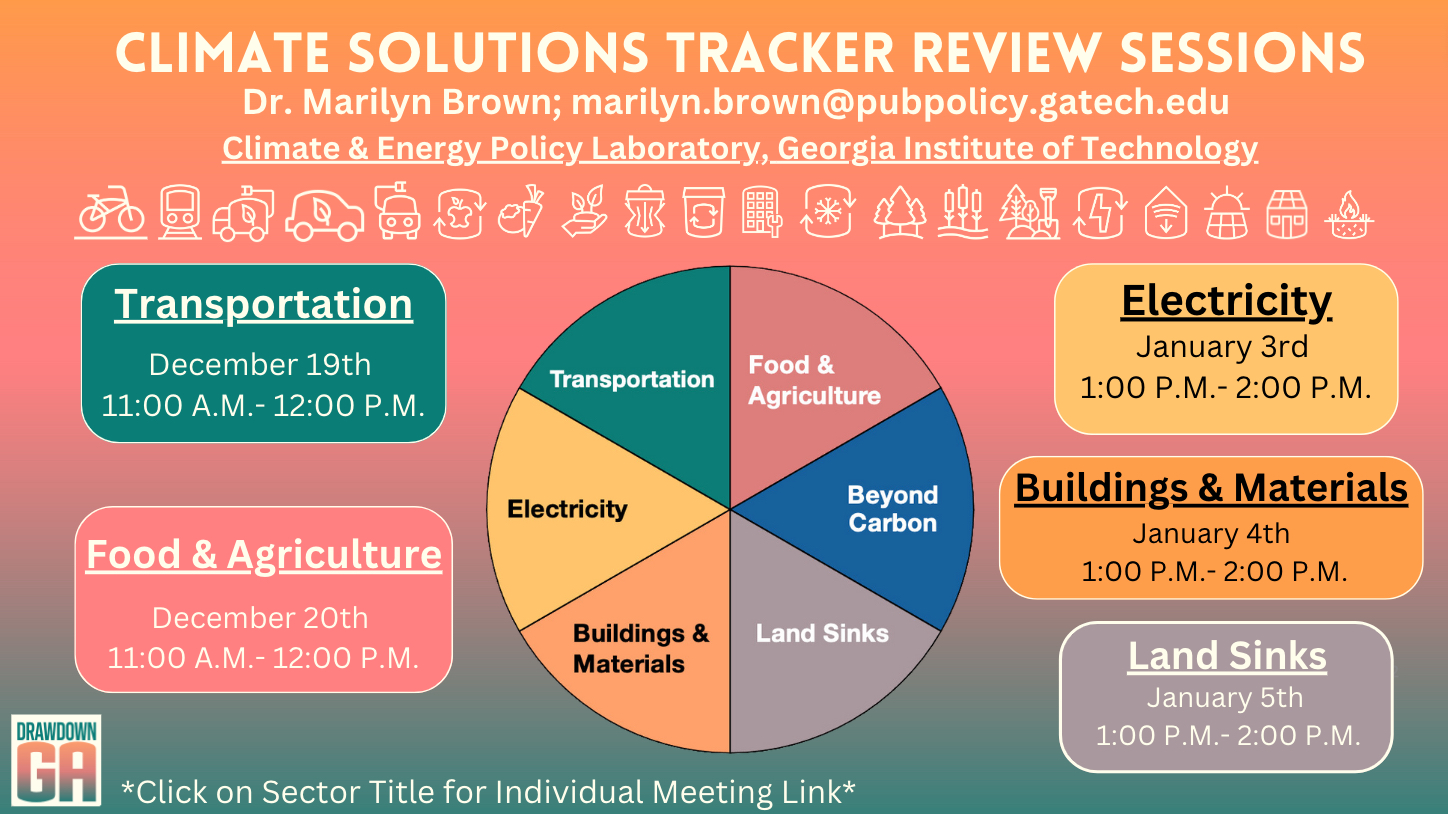DDGA
Drawdown Georgia Research Portal
Drawdown Georgia Research was initiated in 2019 with funding from the Ray C. Anderson Foundation (see the Foundation's Drawdown Georgia website). Drawdown Georgia Research aims to accelerate progress toward net zero greenhouse gas emissions in Georgia. Our team of university researchers and community partners (Southface Institute, Greenlink Analytics, Partnership for Southern Equity, and others) is providing a science-based approach to achieving Drawdown Georgia's goals.
Georgia Tech hosts a Drawdown Georgia Research Portal to share our findings and facilitate collaboration and interaction with stakeholders.
Drawdown Georgia Emissions Tracker
The Drawdown Georgia Emissions Tracker is the first of its kind developed to provide monthly county-level GHG emissions and sinks in a single U.S. state – Georgia. Knowing where and how emissions are occurring is useful to characterizing how and where Drawdown Georgia solutions can be activated. The Tracker currently does not cover all sources of GHG emissions. Future revisions of the Tracker will fill some of these gaps. Future editions of the Tracker will also add information about the emissions of selected Georgia cities as well as counties.
By bringing this information "home" to stakeholders and citizens, we hope to stimulate individual and collective climate action across Georgia.
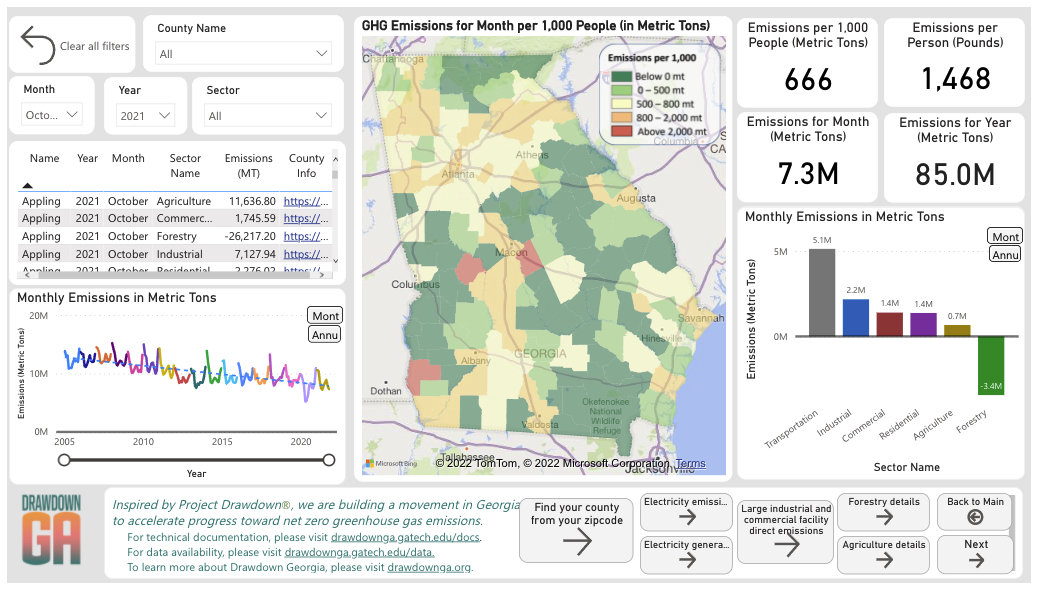
Drawdown Georgia Business Compact
Facilitated by the Ray C. Anderson Center for Sustainable Business, the Drawdown Georgia Business Compact is a business collaboration focused on advancing solutions and achieving net zero emissions through a just transition in Georgia. The Compact builds on comprehensive solution research and ensures diverse participation across Georgia’s economy. Learn more about these corporate leaders and their collective impact work here:
Drawdown Georgia Solutions Tracker
The current work of Drawdown Georgia reflects an altered theory of change. Climate scientists’ predictions are occurring sooner than expected, with more frequent and more damaging climate disruption. We recognize now that there is less time to implement solutions and to adapt to climate threats than previously thought. As a result, we are developing a tracker to monitor and activate solutions. By revealing features of the current marketplace for solutions, and by characterizing key enablers and challenges, we hope to promote “peer” suasion. That is what we mean by "Track+Scale".
Climate Solutions
Blurb / Gallery Set
Track+Scale: Georgia Climate Solutions Workshop
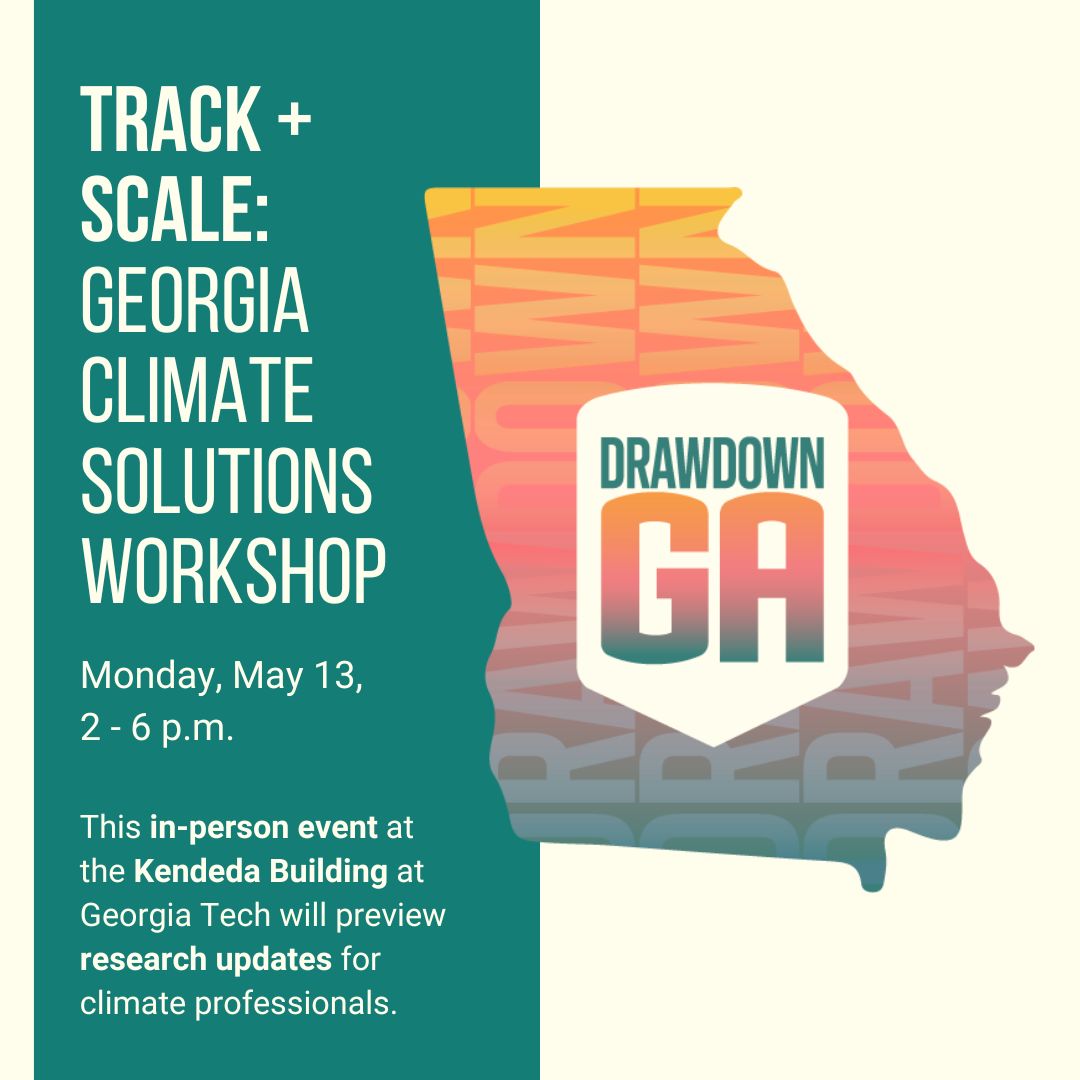
The Workshop will be at Georgia Tech's Kendeda Building, May 13, 2-6 pm. See agenda here and list of break-out room leaders here.
- Interact with new tools being developed to track our progress on scaling Drawdown Georgia climate solutions, and provide feedback
- Learn how Drawdown Georgia continues to inform and empower businesses, researchers, government, NGOs, and advocates to advance climate solutions in our state
- Share your expertise and insights with the Drawdown Georgia research team and other professionals working in the climate space in our state
Georgia's Shrinking GHG emissions
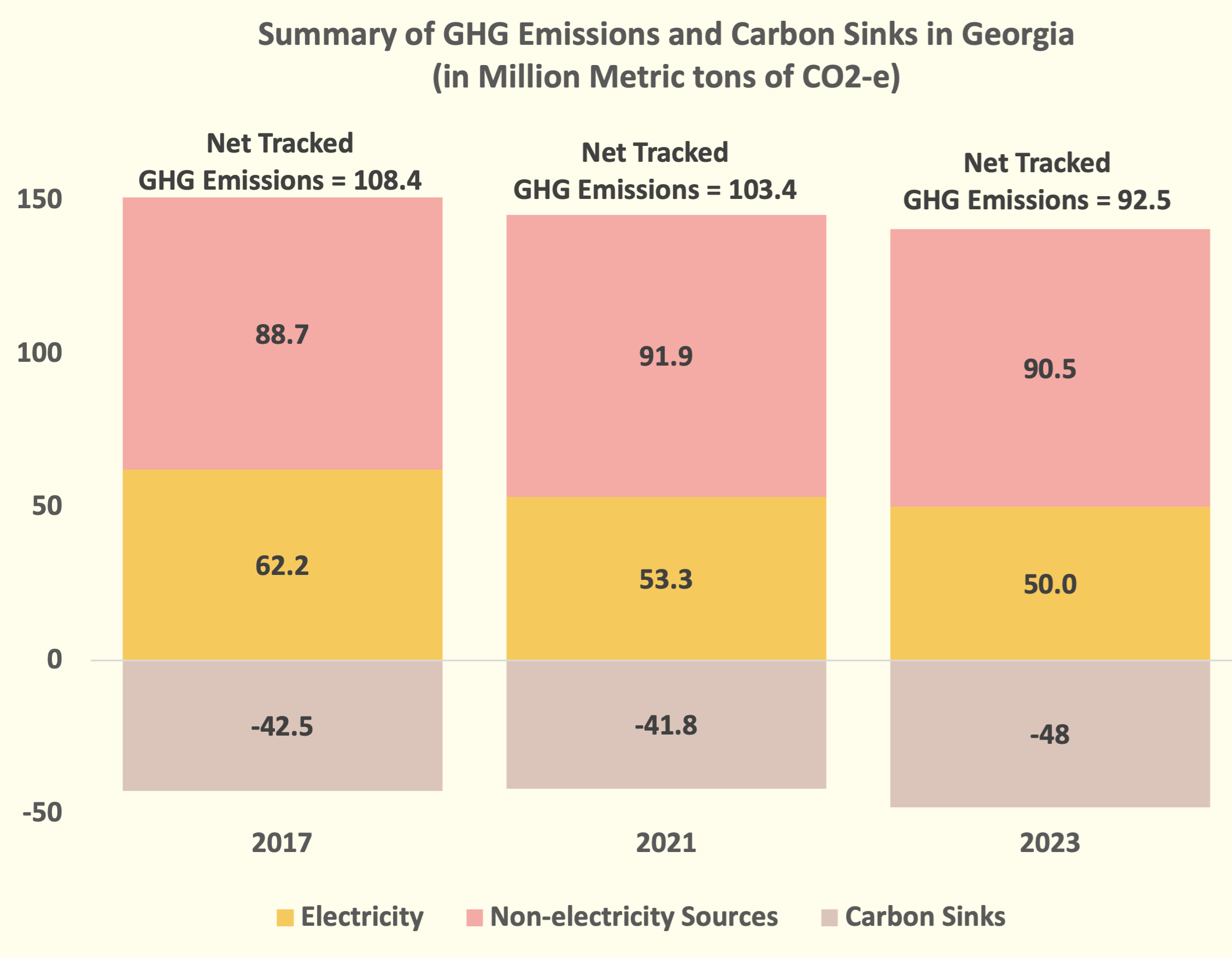
Greenhouse gas (GHG) emissions in Georgia have declined and shifted over the past five years. More than 80% of these emissions and carbon sinks are being tracked by Drawdown Georgia's Emissions Dashboard, which enables Georgia Tech and others to examine this transition. The bottom line is as follows.
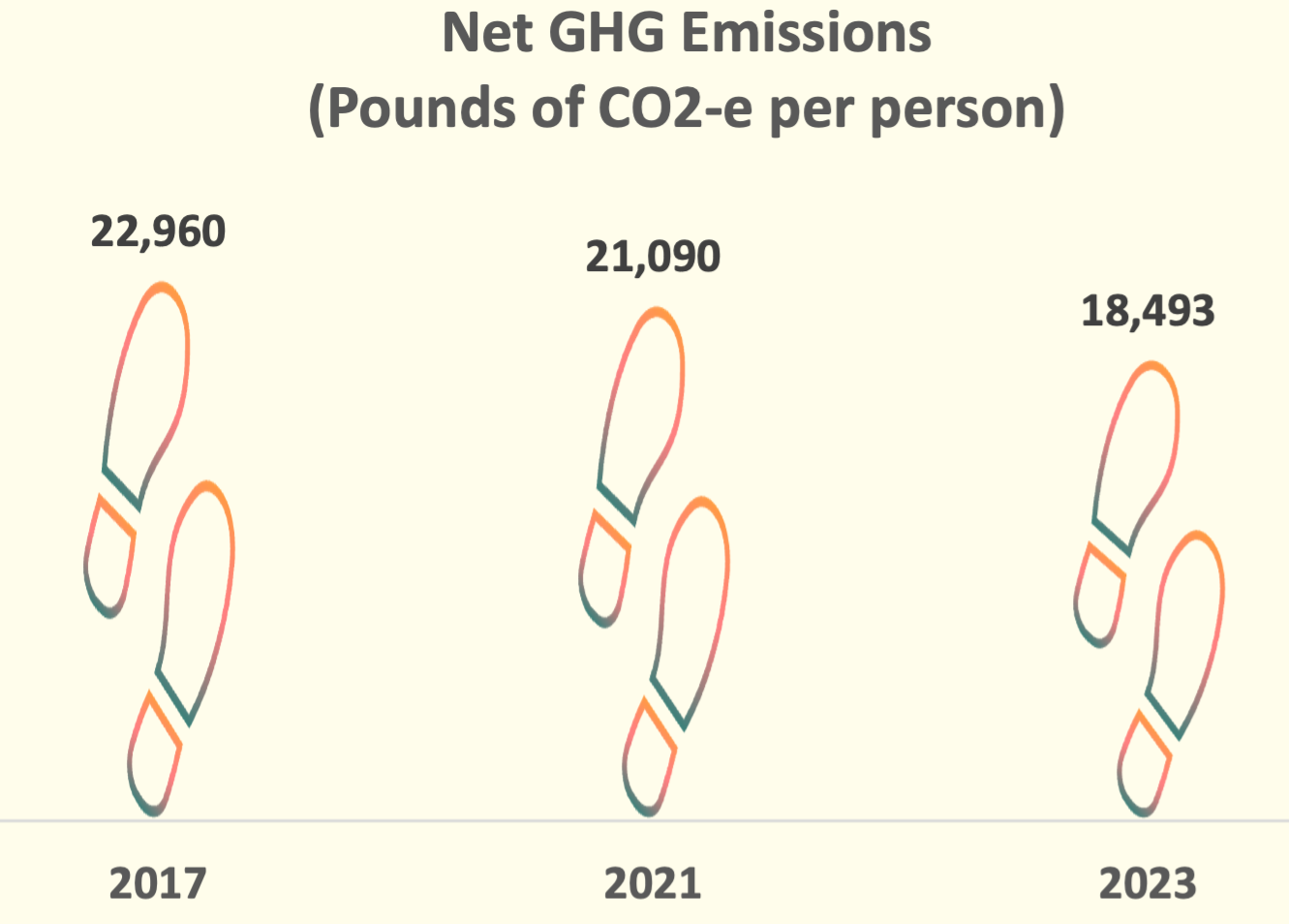
Altogether, Georgia's net emissions declined by 15% from 108 MMTCO2-e in 2017 to 92 in 2023, while the Georgia's GDP grew by 13%.
The average carbon footprint was almost 23,000 pounds in 2017, and now is less than 18,500 per capita. That's an 8% reduction in per capita emissions.
Most of the GHG reductions have been from the use of cleaner fuels to generate electricity. The primary driver in reductions can be most closely associated with the retirement of old coal plants, increased utility-scale solar, and energy efficiency improvements. However, Georgia is consuming more natural gas and diesel fuel today than in 2017.
Across these six years, Georgia's forests, soil, and wood products have provided a steady and significant offset to the state’s carbon emissions.
These emissions are documented in the Drawdown Georgia GHG Emissions Tracker so that we are able to watch how emissions are trending and focus our attention on the sectors where solutions are most needed.
Here's some of the news coverage about our last update:
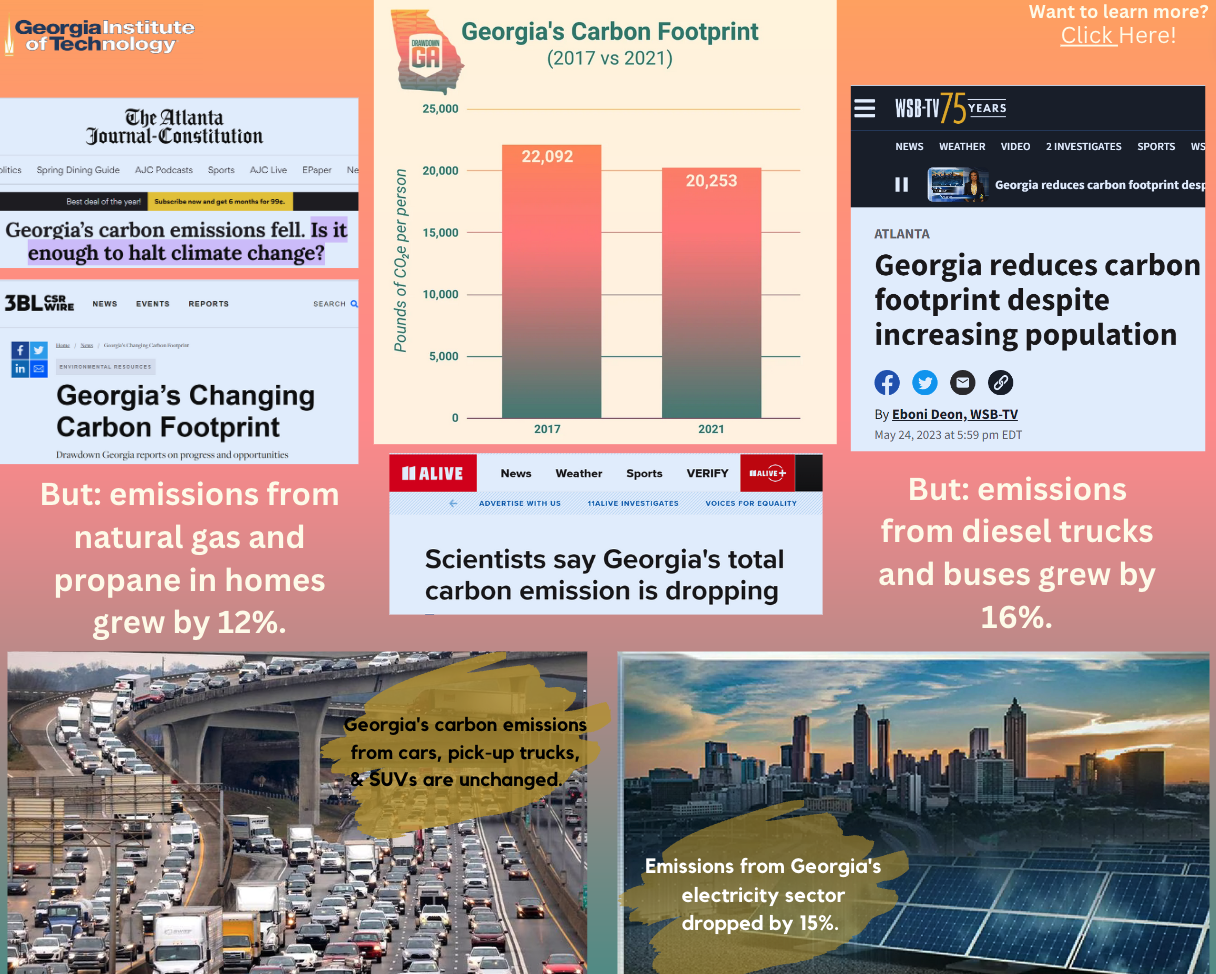
Fall 2023/Spring 2024 Seminar Series: Tracking Climate Solutions
Fall 2022 Seminar Series PPTs and Videos
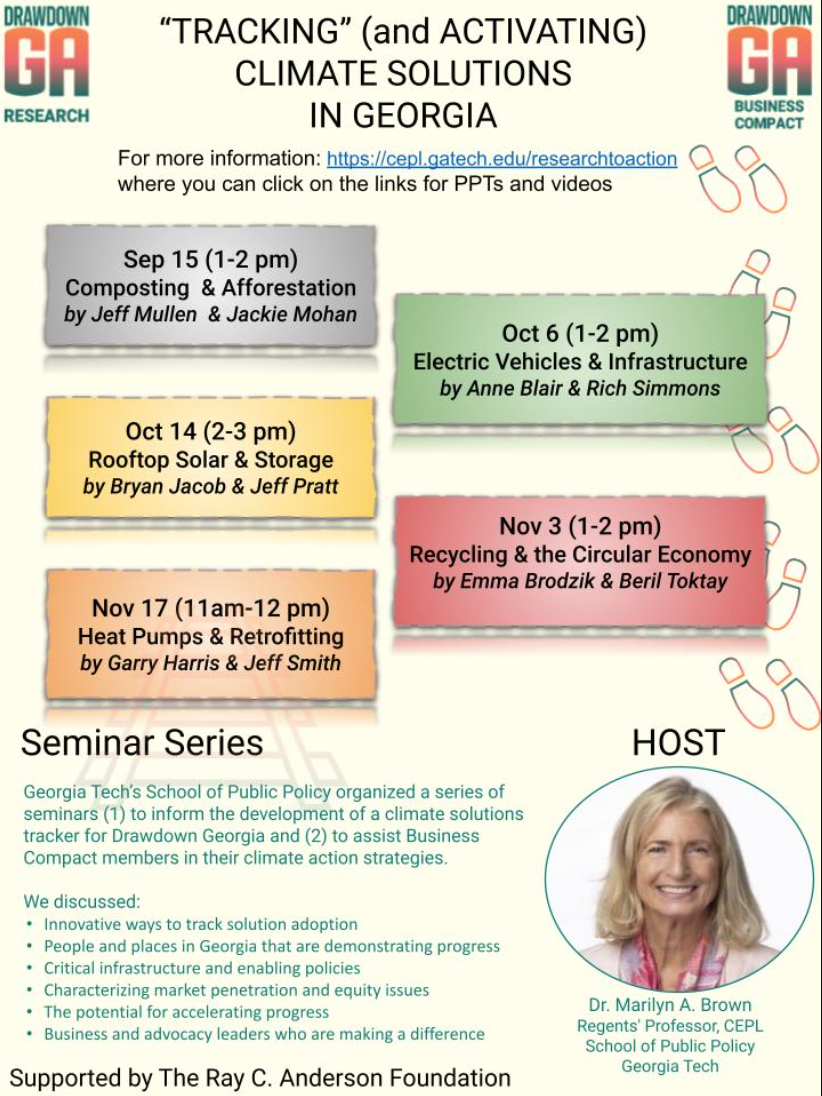
Below are our Fall 2022 Seminar Series PTTs and Videos
Sept 15 - Composting & Afforestation (Drs. Jeff Mullen & Jackie Mohan) PPT here
Oct 6 - Electric Vehicles (Dr. Rich Simmons and Anne Blair) PPT here; video here
Oct 14 - Rooftop Solar (Jeff Pratt and Bryan Jacob) PPT here; video here
Nov 3 - Recycling & Circular Economy (Dr. Beril Toktay and Emma Brodzik) PPT here; video here
Nov 17 - Heat Pumps and Retrofitting (Garry Harris and Jeff Smith) PPT here; video here








